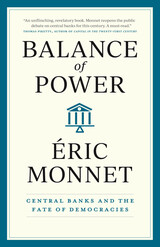458 have author last names that start with F have author last names that start with F

Gustave Flaubert wrote to his mistress, Louise Colet: “An author in his book must be like God in the universe, present everywhere and visible nowhere.” In his books, Flaubert sought to observe that principle; but in his many impassioned letters he allowed his feelings to overflow, revealing himself in all of his human complexity. Sensuous, witty, exalted, ironic, grave, analytical, the letters illustrate the artist’s life—and they trumpet his artistic opinions—in an outpouring of uninhibited eloquence.
An acknowledged master of translation, Francis Steegmuller has given us by far the most generous and varied selection of Flaubert’s letters in English. He presents these with an engrossing narrative that places them in the context of the writer’s life and times. We follow Flaubert through his unhappy years at law school, through his tumultuous affair with Louise Colet; we share his days and nights amid the temples and brothels of Egypt, then on to Palestine, Turkey, Greece, and Rome. And the letters chronicle one of the central events in literary history—the conception and composition of what has been called the first modern novel, Madame Bovary. Steegmuller’s selection concludes with Flaubert’s standing trial for immoral writing, Madame Bovary’s immediate popular success, and Baudelaire’s celebration of its psychological and literary power.
Throughout this exposition in Flaubert’s own words of his views on life, literature, and the passions, readers of his novels will be powerfully reminded of the fertility of his genius, and delighted by his poetic enthusiasm. “Let us sing to Apollo as in ancient days,” he wrote to Louise Colet, “and breathe deeply of the fresh cold air of Parnassus; let us strum our guitars and clash our cymbals and whirl like dervishes in the eternal hubbub of forms and ideas!”
Flaubert’s letters are documents of life and art; lovers of literature and of the literary adventure can rejoice in this edition.
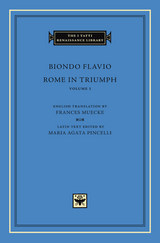
Biondo Flavio (1392–1463), humanist and historian, was a pioneering figure in the Renaissance discovery of antiquity; famously, he was the author who popularized the term “Middle Age” to describe the period between the fall of the Roman Empire and the revival of antiquity in his own time. While serving a number of Renaissance popes, he inaugurated an extraordinary program of research into the history, cultural life, and physical remains of the ancient world.
The capstone of this research program, Rome in Triumph (1459), has been said to bear comparison with the Encyclopédie of Diderot as the embodiment of the ideals of an age, seeking as it does to answer the overarching question of humanists from Petrarch to Machiavelli: what made Rome great? To answer the question Biondo undertakes a comprehensive reconstruction of Rome’s religion, government, military organization, customs and institutions over its thousand-year history. This volume contains the first edition of the Latin text since 1559 and the first translation into any modern language.
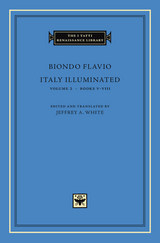
Biondo Flavio (1392–1463), humanist and historian, was a pioneering figure in the Renaissance discovery of antiquity; famously, he was the author who popularized the term “Middle Age” to describe the period between the fall of the Roman Empire and the revival of antiquity in his own time. While serving a number of Renaissance popes, he inaugurated an extraordinary program of research into the history, cultural life, and physical remains of the ancient world.
Italy Illuminated (1453), of which this is the second and final volume, is a topographical work describing Italy region by region. Its aim is to explore the Roman roots of modern Italy. As such, it is the quintessential work of Renaissance antiquarianism.
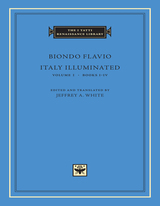

Winner of the National Book Critics Circle Award
A Smithsonian Book of the Year
A New York Review of Books “Best of 2020” Selection
A New York Times Best Art Book of the Year
An Art Newspaper Book of the Year
A powerful document of the inner lives and creative visions of men and women rendered invisible by America’s prison system.
More than two million people are currently behind bars in the United States. Incarceration not only separates the imprisoned from their families and communities; it also exposes them to shocking levels of deprivation and abuse and subjects them to the arbitrary cruelties of the criminal justice system. Yet, as Nicole Fleetwood reveals, America’s prisons are filled with art. Despite the isolation and degradation they experience, the incarcerated are driven to assert their humanity in the face of a system that dehumanizes them.
Based on interviews with currently and formerly incarcerated artists, prison visits, and the author’s own family experiences with the penal system, Marking Time shows how the imprisoned turn ordinary objects into elaborate works of art. Working with meager supplies and in the harshest conditions—including solitary confinement—these artists find ways to resist the brutality and depravity that prisons engender. The impact of their art, Fleetwood observes, can be felt far beyond prison walls. Their bold works, many of which are being published for the first time in this volume, have opened new possibilities in American art.
As the movement to transform the country’s criminal justice system grows, art provides the imprisoned with a political voice. Their works testify to the economic and racial injustices that underpin American punishment and offer a new vision of freedom for the twenty-first century.
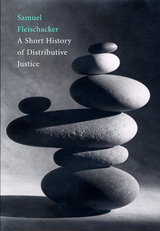
Distributive justice in its modern sense calls on the state to guarantee that everyone is supplied with a certain level of material means. Samuel Fleischacker argues that guaranteeing aid to the poor is a modern idea, developed only in the last two centuries.
Earlier notions of justice, including Aristotle’s, were concerned with the distribution of political office, not of property. It was only in the eighteenth century, in the work of philosophers such as Adam Smith and Immanuel Kant, that justice began to be applied to the problem of poverty. To attribute a longer pedigree to distributive justice is to fail to distinguish between justice and charity.
Fleischacker explains how confusing these principles has created misconceptions about the historical development of the welfare state. Socialists, for instance, often claim that modern economics obliterated ancient ideals of equality and social justice. Free-market promoters agree but applaud the apparent triumph of skepticism and social-scientific rigor. Both interpretations overlook the gradual changes in thinking that yielded our current assumption that justice calls for everyone, if possible, to be lifted out of poverty. By examining major writings in ancient, medieval, and modern political philosophy, Fleischacker shows how we arrived at the contemporary meaning of distributive justice.


Boris Pasternak has generally been regarded as an artist who was indifferent to the literary and political storms of his time. Lazar Fleishman gives the great writer's life a new perspective. He shows that Pasternak's entire literary career should be regarded as a complex and passionate response to constant changes in Russian cultural and social life.
Drawing on a vast array of sources, Fleishman's chronicle encompasses both the familiar and the little-known aspects of the poet's life and work. He describes the formative role played by Pasternak's father, a prominent Russian painter, and the intellectual endeavors of the young man before his literary debut. He explores the intricate relations of Pasternak to the main movements of literary modernism, including symbolism and futurism.
Particularly informative are the chapters devoted to the postrevolutionary years. Fleishman untangles the poet's contacts with leading political figures (Stalin, Trotsky, Bukharin) and fellow writers (Gorky, Mayakovsky, Tsvetaeva, Akhmatova, Mandelshtam), and examines his changes in fortune during the purges and World War II. He shows how Pasternak was perceived by Western contemporaries and how significant their moral support was for him during the darkest years of Stalin's regime. He provides explanations for the Christian themes in Pasternak's later work, as well as the poet's peculiar view of Jewry. Finally, Fleishman recreates the vicissitudes of the publication of Doctor Zhivago and the ensuing Nobel Prize scandal in 1958. A fascinating description of the writer's career in broad context, this book will be welcomed by everyone interested in Pasternak and in twentieth-century literature.
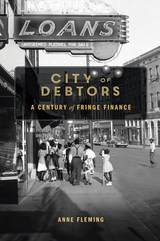
Since the rise of the small-sum lending industry in the 1890s, people on the lowest rungs of the economic ladder in the United States have been asked to pay the greatest price for credit. Again and again, Americans have asked why the most fragile borrowers face the highest costs for access to the smallest loans. To protect low-wage workers in need of credit, reformers have repeatedly turned to law, only to face the vexing question of where to draw the line between necessary protection and overreaching paternalism.
City of Debtors shows how each generation of Americans has tackled the problem of fringe finance, using law to redefine the meaning of justice within capitalism for those on the economic margins. Anne Fleming tells the story of the small-sum lending industry’s growth and regulation from the ground up, following the people who navigated the market for small loans and those who shaped its development at the state and local level. Fleming’s focus on the city and state of New York, which served as incubators for numerous lending reforms that later spread throughout the nation, differentiates her approach from work that has centered on federal regulation. It also reveals the overlooked challenges of governing a modern financial industry within a federalist framework.
Fleming’s detailed work contributes to the broader and ongoing debate about the meaning of justice within capitalistic societies, by exploring the fault line in the landscape of capitalism where poverty, the welfare state, and consumer credit converge.


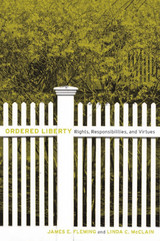
Many have argued in recent years that the U.S. constitutional system exalts individual rights over responsibilities, virtues, and the common good. Answering the charges against liberal theories of rights, James Fleming and Linda McClain develop and defend a civic liberalism that takes responsibilities and virtues—as well as rights—seriously. They provide an account of ordered liberty that protects basic liberties stringently, but not absolutely, and permits government to encourage responsibility and inculcate civic virtues without sacrificing personal autonomy to collective determination.
The battle over same-sex marriage is one of many current controversies the authors use to defend their understanding of the relationship among rights, responsibilities, and virtues. Against accusations that same-sex marriage severs the rights of marriage from responsible sexuality, procreation, and parenthood, they argue that same-sex couples seek the same rights, responsibilities, and goods of civil marriage that opposite-sex couples pursue. Securing their right to marry respects individual autonomy while also promoting moral goods and virtues. Other issues to which they apply their idea of civic liberalism include reproductive freedom, the proper roles and regulation of civil society and the family, the education of children, and clashes between First Amendment freedoms (of association and religion) and antidiscrimination law. Articulating common ground between liberalism and its critics, Fleming and McClain develop an account of responsibilities and virtues that appreciates the value of diversity in our morally pluralistic constitutional democracy.

In Strange Tales from Edo, William Fleming paints a sweeping picture of Japan’s engagement with Chinese fiction in the early modern period (1600–1868). Large-scale analyses of the full historical and bibliographical record—the first of their kind—document in detail the wholesale importation of Chinese fiction, the market for imported books and domestic reprint editions, and the critical role of manuscript practices—the ascendance of print culture notwithstanding—in the circulation of Chinese texts among Japanese readers and writers.
Bringing this big picture to life, Fleming also traces the journey of a text rarely mentioned in studies of early modern Japanese literature: Pu Songling’s Liaozhai zhiyi (Strange Tales from Liaozhai Studio). An immediate favorite of readers on the continent, Liaozhai was long thought to have been virtually unknown in Japan until the modern period. Copies were imported in vanishingly small numbers, and the collection was never reprinted domestically. Yet beneath this surface of apparent neglect lies a rich hidden history of engagement and rewriting—hand-copying, annotation, criticism, translation, and adaptation—that opens up new perspectives on both the Chinese strange tale and its Japanese counterparts.
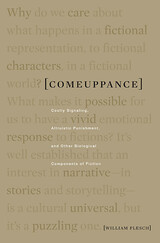
With Comeuppance, William Flesch delivers the freshest, most generous thinking about the novel since Walter Benjamin wrote on the storyteller and Wayne C. Booth on the rhetoric of fiction. In clear and engaging prose, Flesch integrates evolutionary psychology into literary studies, creating a new theory of fiction in which form and content flawlessly intermesh.
Fiction, Flesch contends, gives us our most powerful way of making sense of the social world. Comeuppance begins with an exploration of the appeal of gossip and ends with an account of how we can think about characters and care about them as much as about persons we know to be real. We praise a storyteller who contrives a happy or at least an appropriate ending, and fault the writer who refuses us one. Flesch uses Darwinian theory to show how fiction satisfies our desire to see the good vindicated and the wicked get their comeuppance. He conveys the danger and excitement of reading fiction with nimble intelligence and provides wide reference to stories both familiar and little known.
Flesch has given us a book that is sure to claim a central place in the discussion of literature and the humanities.

Angus Fletcher is one of our finest theorists of the arts, the heir to I. A. Richards, Erich Auerbach, Northrop Frye. This, his grandest book since the groundbreaking Allegory of 1964, aims to open another field of study: how thought--the act, the experience of thinking--is represented in literature.
Recognizing that the field of formal philosophy is only one demonstration of the uses of thought, Fletcher looks for the ways other languages (and their framing forms) serve the purpose of certain thinking activities. What kinds of thinking accompany the writing of history? How does the gnomic sentence manage to represent some point of belief? The fresh insights Fletcher achieves at every turn suggest an anatomy of poetic and fictional strategies for representing thought--the hazards, the complications, the sufferings, the romance of thought. Fletcher's resources are large, and his step is sure. The reader samples his piercing vision of Milton's Satan, the original Thinker, leaving the pain of thinking as his legacy for mankind; Marvell's mysteriously haunting "green thought in a green shade"; Old Testament and Herodotus, Vico and Coleridge; Crane, Calvino, Stevens. Fletcher ranges over the heights of literature, poetry, music, and film, never losing sight of his central line of inquiry. He includes comments on the essential role of unclear, vague, and even irrational thinking to suggest that ideas often come alive as thoughts only in a process of considerable distress. In the end he gives us literature--not the content of thought, but its form, its shape, the fugitive colors taken on by the mind as represented in art.
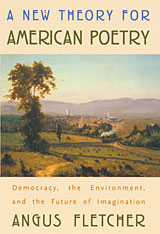
Amid gloomy forecasts of the decline of the humanities and the death of poetry, Angus Fletcher, a wise and dedicated literary voice, sounds a note of powerful, tempered optimism. He lays out a fresh approach to American poetry at large, the first in several decades, expounding a defense of the art that will resonate well into the new century.
Breaking with the tired habit of treating American poets as the happy or rebellious children of European romanticism, Fletcher uncovers a distinct lineage for American poetry. His point of departure is the fascinating English writer, John Clare; he then centers on the radically American vision expressed by Emerson and Walt Whitman. With Whitman this book insists that "the whole theory and nature of poetry" needs inspiration from science if it is to achieve a truly democratic vista. Drawing variously on Complexity Theory and on fundamentals of art and grammar, Fletcher argues that our finest poetry is nature-based, environmentally shaped, and descriptive in aim, enabling poets like John Ashbery and other contemporaries to discover a mysterious pragmatism.
Intense, resonant, and deeply literary, this account of an American poetics shows how today's consumerist and conformist culture subverts the imagination of a free people. While centering on American vision, the argument extends our horizon, striking a blow against all economically sanctioned attacks upon the finer, stronger human capacities. Poetry, the author maintains, is central to any coherent vision of life.
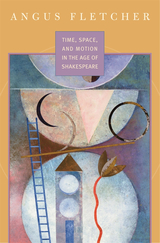
Theirs was a world of exploration and experimentation, of movement and growth--and in this, the thinkers of the Renaissance, poets and scientists alike, followed their countrymen into uncharted territory and unthought space. A book that takes us to the very heart of the enterprise of the Renaissance, this closely focused but far-reaching work by the distinguished scholar Angus Fletcher reveals how early modern science and English poetry were in many ways components of one process: discovering and expressing the secrets of motion, whether in the language of mathematics or verse.
Throughout his book, Fletcher is concerned with one main crisis of knowledge and perception, and indeed cognition generally: the desire to find a correct theory of motion that could only end with Newton's Laws. Beginning with the achievement of Galileo--which changed the world--Time, Space, and Motion identifies the problem of motion as the central cultural issue of the time, pursued through the poetry of the age, from Marlowe and Shakespeare to Ben Jonson and Milton, negotiated through the limits and the limitless possibilities of language much as it was through the constraints of the physical world.

Boldly original and boundary defining, The Topological Imagination clears a space for an intellectual encounter with the shape of human imagining. Joining two commonly opposed domains, literature and mathematics, Angus Fletcher maps the imagination’s ever-ramifying contours and dimensions, and along the way compels us to re-envision our human existence on the most unusual sphere ever imagined, Earth.
Words and numbers are the twin powers that create value in our world. Poetry and other forms of creative literature stretch our ability to evaluate through the use of metaphors. In this sense, the literary imagination aligns with topology, the branch of mathematics that studies shape and space. Topology grasps the quality of geometries rather than their quantifiable measurements. It envisions how shapes can be bent, twisted, or stretched without losing contact with their original forms—one of the discoveries of the eighteenth-century mathematician Leonhard Euler, whose Polyhedron Theorem demonstrated how shapes preserve “permanence in change,” like an aging though familiar face.
The mysterious dimensionality of our existence, Fletcher says, is connected to our inhabiting a world that also inhabits us. Theories of cyclical history reflect circulatory biological patterns; the day-night cycle shapes our adaptive, emergent patterns of thought; the topology of islands shapes the evolution of evolutionary theory. Connecting literature, philosophy, mathematics, and science, The Topological Imagination is an urgent and transformative work, and a profound invitation to thought.
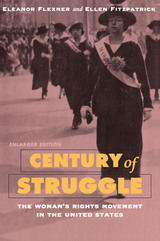
Century of Struggle tells the story of one of the great social movements in American history. The struggle for women’s voting rights was one of the longest, most successful, and in some respects most radical challenges ever posed to the American system of electoral politics.
“The book you are about to read tells the story of one of the great social movements in American history. The struggle for women’s voting rights was one of the longest, most successful, and in some respects most radical challenges ever posed to the American system of electoral politics… It is difficult to imagine now a time when women were largely removed by custom, practice, and law from the formal political rights and responsibilities that supported and sustained the nation’s young democracy… For sheer drama the suffrage movement has few equals in modern American political history.”—From the Preface by Ellen Fitzpatrick

In 1863 the Valuev Circular restricted the use of the Ukrainian language in the Russian Empire. In the 150 years since, Ukrainian has followed a tortuous path, reflecting or anticipating tsarist, Soviet, and post-Soviet history. This volume documents that path, studying the language’s emergence in southern Rus´, its shifting fortunes in the Russian Empire and Soviet Union, and its variable status after 1991.
Ukrainian can serve as a useful prism for assessing 150 years of imperial disintegration and reformation, and worldwide state and nation building—a period in which other languages have been created, promoted, and repressed, or have come to coexist in multilingual nations. Case studies of Gaelic, Finnish, Yiddish, the Baltic group, and of language policy in Canada, India, and the former Yugoslavia illuminate similarities and differences in chronological, comparative, international, and transnational terms. The result is an interdisciplinary study that is essential for understanding language, history, and politics in Ukraine and in the post-imperial world.
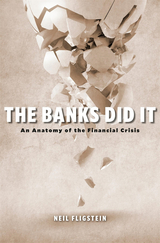
A comprehensive account of the rise and fall of the mortgage-securitization industry, which explains the complex roots of the 2008 financial crisis.
More than a decade after the 2008 financial crisis plunged the world economy into recession, we still lack an adequate explanation for why it happened. Existing accounts identify a number of culprits—financial instruments, traders, regulators, capital flows—yet fail to grasp how the various puzzle pieces came together. The key, Neil Fligstein argues, is the convergence of major US banks on an identical business model: extracting money from the securitization of mortgages. But how, and why, did this convergence come about?
The Banks Did It carefully takes the reader through the development of a banking industry dependent on mortgage securitization. Fligstein documents how banks, with help from the government, created the market for mortgage securities. The largest banks—Countrywide Financial, Bear Stearns, Citibank, and Washington Mutual—soon came to participate in every aspect of this market. Each firm originated mortgages, issued mortgage-backed securities, sold those securities, and, in many cases, acted as their own best customers by purchasing the same securities. Entirely reliant on the throughput of mortgages, these firms were unable to alter course even when it became clear that the market had turned on them in the mid-2000s.
With the structural features of the banking industry in view, the rest of the story falls into place. Fligstein explains how the crisis was produced, where it spread, why regulators missed the warning signs, and how banks’ dependence on mortgage securitization resulted in predatory lending and securities fraud. An illuminating account of the transformation of the American financial system, The Banks Did It offers important lessons for anyone with a stake in avoiding the next crisis.



A very short introduction to Roman history.
Florus, born apparently in Africa, lived in Spain and in Rome during Hadrian’s time. He wrote, in succinct rhetorical style, a summary of Roman history (especially wars) in two books in order to show the early greatness and subsequent decline of Roman morals. It is based chiefly on Livy. Florus’ Epitome was perhaps planned to reach his own times, but the extant work ends with Augustus’ reign. Florus provides a useful rapid sketch of Roman military history.
Poetry by Florus is also available in the Loeb Classical Library, in Volume II of Minor Latin Poets (LCL 434).



With marine ecosystems endangered by a warming climate and exploding human population growth, a critical transformation is taking place in the way the world's ocean resources are managed. Marine Ecosystem-Based Management presents a state-of-the-art synopsis of the conservation approaches that are currently being translated from theory to action on a global scale. With contributions from an international team of experts, this volume synthesizes the scientific literature of holistic practices in ecosystem-based management (EBM), focusing on protecting the marine ecologies that humans and countless other organisms vitally depend upon.
Human uses of ocean ecosystems have usually been divided into separate sectors--fisheries, transportation, tourism, and recreation, for example--and ecosystem boundaries defined as much by politics as geography. This approach is giving way to a broader strategy based on integrated management of human activities in scientifically identified regions of the marine environment. Spanning a range of issues from the tropics to the poles, the authors present analyses of open ocean systems and high-impact regions such as coastlines, coral reefs, and estuaries. Methods of modeling and evaluating marine EBM are explored, as well as the role of governmental and other regulatory frameworks in ocean management and the lessons to be learned from past ecological interventions.
It is now widely recognized that any viable strategy for sustaining the world's oceans must reflect the relationships among all ecosystem components, human and nonhuman species included. Marine Ecosystem-Based Management is an in-depth report of new advances in the rapidly evolving discipline of coupled Human-Ecological Systems.

Novelists have individually distinctive ideas of dialogue, Aaron Fogel argues. In this analysis of Conrad's narrative craft he explores--with broad implications--the theory and uses of dialogue.
Conrad's was a distinctive reading of the English language conditioned by his particular idea of forced speech and forced writing. Fogel shows how Conrad shaped ideas and events and interpreted character and institutions by means of dialogues representing not free exchange but various forms of forcing another to respond. He applied this format not only to the obvious political contexts, such as inquisition or spying, but also to seemingly more private relations, such as marriage, commerce, and storytelling. His idea of dialogue shaded the meanings he gave to words even to characters' names. Conrad is particularly interested in scenes in which a speech-forcer is surprised, repudiated, or punished. Fogel concludes that Conrad increasingly saw the punishment of the speech-forcer as classically related to Oedipus inquiries, in which the provoked answers rebound upon and destroy the forcer. This punishment is--as Shakespeare, Scott, and Wordsworth also dramatically intuited--the classical Oedipal dialogue scene.
Fogel's analysis ranges widely over Conrad's fiction but focuses especially on Nostromo, The Secret Agent, and Under Western Eyes. His readings offer a balanced critique of Mikhail Bakhtin's theories about dialogic. Conrad's novels have many of the features Bakhtin identified as dialogical; but he was preoccupied with coercion in dialogue form. Fogel proposes that to understand this form is to begin to reconsider our political and aesthetic assumptions about what dialogue is or ought to be.

Before the Cultural Revolution, Ai Ssu-ch’i (1910–1966) was one of Communist China’s foremost Marxist philosophers, second only to Chairman Mao himself. Ai was attracted to Marxism-Leninism as a young student in China and Japan, and wrote numerous books and articles seeking to explain the complexities of the philosophy in language everyone could understand. His writings were enormously popular during the 1930s and 1940s, and went through many printings despite continuous harassment from Kuomintang censors.
This volume is the first full-length study of Ai Ssu-ch’i. In spite of his popularity, Ai has largely been ignored in recent histories of the Chinese Communist movement, because his importance lies in his function as a popularizer rather than as an original thinker. However, it can be shown that Mao and other leaders of the movement were influenced by him, and his writings and translations certainly helped to attract many young Chinese intellectuals to the Communist cause.
The recent flood of reminiscence literature in China has reserved a special place of prominence for Ai Ssu-ch’i. This is not only because he was so admired by Mao, but also because he devoted his life so enthusiastically and wholeheartedly to the Party. Joshua Fogel traces the pattern of this devotion via Ai’s crucial role in spreading Marxist-Leninist thought among Chinese intellectuals.
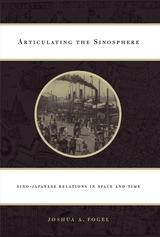
Joshua Fogel offers an incisive historical look at Sino-Japanese relations from three different perspectives. Using first a wide lens, he suggests a new way to capture the relationship between China and Japan by characterizing the nature of their contact. From the first century CE, the primary reasons for contact moved from political and ceremonial to cultural, and on to commercial ties. This period ends at the dawn of the modern age, when contacts involved treaties, consulates, and international law.
Switching to a microhistorical view, Fogel examines several important behind-the-scenes players in the launching of the countries’ modern diplomatic relations. He focuses on the voyage of the Senzaimaru from Nagasaki to Shanghai in 1862—the first official meeting of Chinese and Japanese in the modern era—and the Dutchman who played an important intermediary role. Finally, he examines the first expatriate Japanese community in the modern era, in Shanghai from the 1860s to the mid-1890s, when the first Sino-Japanese War erupted.
Introducing the concept of “Sinosphere” to capture the nature of Sino-foreign relations both spatially and temporally, Fogel presents an original and thought-provoking study on the long, complex relationship between China and Japan.

In 1914, Nakeae Ushikichi (1889-1942), gifted son of the famous Nakae Chōmin (1847-1901) and graduate of Tokyo University's Faculty of Law, left behind the opportunities open to him in Japan and went to China. He worked briefly for the South Manchurian Railway and then in the Yüan Shih-k'ai government, but a personal crisis in 1919 turned him suddenly to a life of rigorous scholarship and social criticism. He spent most of his adult life in Peking, published little, deeply influenced a few key compatriots, and became a posthumous hero to a generation of postwar Japanese intellectuals.
In the first full-length study in English of the life and thought of Nakae Ushikichi, Joshua A. Fogel tells the strange story of this cocky, indolent carouser who became a disciplined scholar and passionate advocate of the worth of all humanity. Fogel examines Nakae's Sinological work in the context of his wide reading in German philosophy, Western historiography, and classical Chinese sources. He also translates Nakae's wartime diary.

Naito Konan's periodization of Chinese history is responsible for shaping the twentieth-century Western view of China. Naito was a journalist in the vibrant Meiji press for twenty years, during which he became recognized as Japan's leading Sinologist. He then assumed a chair in China Studies at Kyoto University, where he taught for twenty years, remaining all the while a prolific writer on public affairs. Joshua Fogel's biography treats Naito holistically, pointing up the intricate connections between his Sinological and political interests.
As a part of an ongoing tradition based in jitsugaku (concern with the practical applications of knowledge), Naito focused on what he took to be Japan's mission, after its own Meiji reforms, to help China implement comparable reforms. His emphasis on Chinese history and culture as the central influence in East Asia strengthened his Pan-Asian political convictions.
Fogel's study offers a penetrating look at a scholar-journalist whose influence, fifty years after his death, is still powerful.
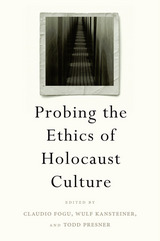
Depictions of the Holocaust in history, literature, and film became a focus of intense academic debate in the 1980s and 1990s. Today, with the passing of the eyewitness generation and the rise of comparative genocide studies, the Holocaust’s privileged place not only in scholarly discourse but across Western society has been called into question.
Probing the Ethics of Holocaust Culture is a searching reappraisal of the debates and controversies that have shaped Holocaust studies over a quarter century. This landmark volume brings international scholars of the founding generation of Holocaust studies into conversation with a new generation of historians, artists, and writers who have challenged the limits of representation through their scholarly and cultural practices. Focusing on the public memorial cultures, testimonial narratives, and artifacts of cultural memory and history generated by Holocaust remembrance, the volume examines how Holocaust culture has become institutionalized, globalized, and variously contested. Organized around three interlocking themes—the stakes of narrative, the remediation of the archive, and the politics of exceptionality—the essays in this volume explore the complex ethics surrounding the discourses, artifacts, and institutions of Holocaust remembrance.
From contrasting viewpoints and, in particular, from the multiple perspectives of genocide studies, the authors question if and why the Holocaust should remain the ultimate test case for ethics and a unique reference point for how we understand genocide and crimes against humanity.

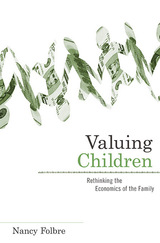
Nancy Folbre challenges the conventional economist's assumption that parents have children for the same reason that they acquire pets--primarily for the pleasure of their company. Children become the workers and taxpayers of the next generation, and "investments" in them offer a significant payback to other participants in the economy.
Yet parents, especially mothers, pay most of the costs. The high price of childrearing pushes many families into poverty, often with adverse consequences for children themselves.
Parents spend time as well as money on children. Yet most estimates of the "cost" of children ignore the value of this time. Folbre provides a startlingly high but entirely credible estimate of the value of parental time per child by asking what it would cost to purchase a comparable substitute for it.
She also emphasizes the need for better accounting of public expenditure on children over the life cycle and describes the need to rethink the very structure and logic of the welfare state. A new institutional structure could promote more cooperative, sustainable, and efficient commitments to the next generation.

Teofilo Folengo (1491–1544) was born in Mantua and joined the Benedictine order, but became a runaway monk and a satirist of monasticism. In 1517 he published, under the pseudonym Merlin Cocaio, the first version of his macaronic narrative poem Baldo, later enlarged and elaborated. It blended Latin with various Italian dialects in hexameter verse, inventing a deliberately droll language whose humor depends on the mixture of high and low tonalities. An important example of the mock-heroic epic, the work was a model for Rabelais and was frequently reprinted.
Baldo, the hero of these picaresque adventures, is a descendant of French royalty who starts out as something of a juvenile delinquent. The poem narrates episodes that include imprisonment; battles with local authorities, pirates, shepherds, witches, and demons; and a journey to the underworld. Throughout Baldo is accompanied by various companions, among them a giant, a centaur, a magician, and his best friend Cingar, a wickedly inventive trickster (“practicus ad beffas”). This edition provides the first English translation of this hilarious send-up of ancient epic and Renaissance chivalric romance.

Teofilo Folengo (1491-1544) was born in Mantua and joined the Benedictine order, but became a runaway monk and a satirist of monasticism. In 1517 he published, under the pseudonym Merlin Cocaio, the first version of his macaronic narrative poem Baldo, later enlarged and elaborated. It blended Latin with various Italian dialects in hexameter verse, inventing a deliberately droll language whose humor depends on the mixture of high and low tonalities. An important example of the mock-heroic epic, the work was a model for Rabelais and was frequently reprinted.
Baldo, the hero of these picaresque adventures, is a descendant of French royalty who starts out as something of a juvenile delinquent. The poem narrates episodes which include imprisonment; battles with local authorities, pirates, shepherds, witches, and demons; and a journey to the underworld. Throughout Baldo is accompanied by various companions, among them a giant, a centaur, a magician, and his best friend Cingar, a wickedly inventive trickster ("practicus ad beffas"). This edition provides the first English translation of this hilarious send-up of ancient epic and Renaissance chivalric romance.
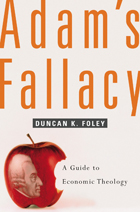
This book could be called “The Intelligent Person’s Guide to Economics.” Like Robert Heilbroner’s The Worldly Philosophers, it attempts to explain the core ideas of the great economists, beginning with Adam Smith and ending with Joseph Schumpeter. In between are chapters on Thomas Malthus, David Ricardo, Karl Marx, the marginalists, John Maynard Keynes, Friedrich Hayek, and Thorstein Veblen. The title expresses Duncan Foley’s belief that economics at its most abstract and interesting level is a speculative philosophical discourse, not a deductive or inductive science. Adam’s fallacy is the attempt to separate the economic sphere of life, in which the pursuit of self-interest is led by the invisible hand of the market to a socially beneficial outcome, from the rest of social life, in which the pursuit of self-interest is morally problematic and has to be weighed against other ends.
Smith and his successors argued that the market and the division of labor that is fostered by it result in tremendous gains in productivity, which lead to a higher standard of living. Yet the market does not address the problem of distribution—that is, how is the gain in wealth to be divided among the classes and members of society? Nor does it address such problems as the long-run well-being of the planet.
Adam’s Fallacy is beautifully written and contains interesting observations and insights on almost every page. It will engage the reader’s thoughts and feelings on the deepest level.
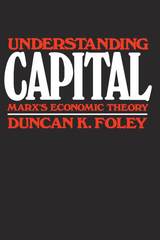
Understanding Capital is a brilliantly lucid introduction to Marxist economic theory. Duncan Foley builds an understanding of the theory systematically, from first principles through the definition of central concepts to the development of important applications. All of the topics in the three volumes of Capital are included, providing the reader with a complete view of Marxist economics.
Foley begins with a helpful discussion of philosophical problems readers often encounter in tackling Marx, including questions of epistemology, explanation, prediction, determinism, and dialectics. In an original extension of theory, he develops the often neglected concept of the circuit of capital to analyze Marx’s theory of the reproduction of capital. He also takes up central problems in the capitalist economy: equalization of the rates of profit (the “transformation problem”); productive and unproductive labor and the division of surplus value; and the falling rate of profit. He concludes with a discussion of the theory of capitalist crisis and of the relation of Marx’s critique of capitalism to his conception of socialism.
Through a careful treatment of the theory of money in relation to the labor theory of value, Foley clarifies the relation of prices to value and of Marx’s categories of analysis to conventional business and national income accounts, enabling readers to use Marx’s theory as a tool for the analysis of practical problems. The text is closely keyed throughout to the relevant chapters in Capital and includes suggestions for further reading on the topics discussed.

Growth and Distribution is the first text designed to support a comprehensive advanced undergraduate or graduate course on the theory, measurement, and history of economic growth. The book, which presents Classical and Keynesian in parallel with Neoclassical approaches to growth theory, introduces students to advanced tools of intertemporal economic analysis through carefully developed treatments of land- and resource-limited growth, and covers money and growth, the impact of government debt and social security systems on growth, and theories of endogenous growth and endogenous technical change. The models emphasize rigorous reasoning from basic economic principles and insights without excessive formal complication, and respond to students' interest in the history and policy dilemmas of real-world economies. Surveys of data and discussion of empirical controversies are closely integrated with the development of theoretical tools. The book includes access to a comprehensive data set extending the Penn World Tables in a form suitable for exploration in hands-on student projects.
In addition to carefully worked examples showing how to use the analytical techniques presented, the book contains many problems suitable for inclusion in problem sets and examinations. Detailed answers to these problems are also provided.
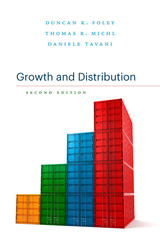
A major revision of an established textbook on the theory, measurement, and history of economic growth, with new material on climate change, corporate capitalism, and innovation.
Authors Duncan Foley, Thomas Michl, and Daniele Tavani present Classical and Keynesian approaches to growth theory, in parallel with Neoclassical ones, and introduce students to advanced tools of intertemporal economic analysis through carefully developed treatments of land- and resource-limited growth. They cover corporate finance, the impact of government debt and social security systems, theories of endogenous technical change, and the implications of climate change. Without excessive formal complication, the models emphasize rigorous reasoning from basic economic principles and insights, and respond to students’ interest in the history and policy dilemmas of real-world economies.
In addition to carefully worked out examples showing how to use the analytical techniques presented, Growth and Distribution presents many problems suitable for inclusion in problem sets and examinations. Detailed answers to these problems are available. This second edition includes fresh data throughout and new chapters on climate change, corporate capitalism, models of wealth inequality, and technical change.
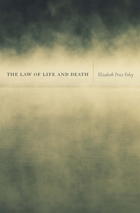
Are you alive? What makes you so sure? Most people believe this question has a clear answer—that some law defines our status as living (or not) for all purposes. But they are dead wrong. In this pioneering study, Elizabeth Price Foley examines the many, and surprisingly ambiguous, legal definitions of what counts as human life and death.
Foley reveals that “not being dead” is not necessarily the same as being alive, in the eyes of the law. People, pre-viable fetuses, and post-viable fetuses have different sets of legal rights, which explains the law's seemingly inconsistent approach to stem cell research, in vitro fertilization, frozen embryos, in utero embryos, contraception, abortion, homicide, and wrongful death.
In a detailed analysis that is sure to be controversial, Foley shows how the need for more organ transplants and the need to conserve health care resources are exerting steady pressure to expand the legal definition of death. As a result, death is being declared faster than ever before. The "right to die," Foley worries, may be morphing slowly into an obligation to die.
Foley’s balanced, accessible chapters explore the most contentious legal issues of our time—including cryogenics, feticide, abortion, physician-assisted suicide, brain death, vegetative and minimally conscious states, informed consent, and advance directives—across constitutional, contract, tort, property, and criminal law. Ultimately, she suggests, the inconsistencies and ambiguities in U.S. laws governing life and death may be culturally, and perhaps even psychologically, necessary for an enormous and diverse country like ours.
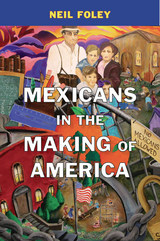
A Choice Outstanding Academic Title of the Year
According to census projections, by 2050 nearly one in three U.S. residents will be Latino, and the overwhelming majority of these will be of Mexican descent. This dramatic demographic shift is reshaping politics, culture, and fundamental ideas about American identity. Neil Foley, a leading Mexican American historian, offers a sweeping view of the evolution of Mexican America, from a colonial outpost on Mexico’s northern frontier to a twenty-first-century people integral to the nation they have helped build.
“Compelling…Readers of all political persuasions will find Foley’s intensively researched, well-documented scholarly work an instructive, thoroughly accessible guide to the ramifications of immigration policy.”
—Publishers Weekly
“For Americans long accustomed to understanding the country’s development as an east-to-west phenomenon, Foley’s singular service is to urge us to tilt the map south-to-north and to comprehend conditions as they have been for some time and will likely be for the foreseeable future…A timely look at and appreciation of a fast-growing demographic destined to play an increasingly important role in our history.”
—Kirkus Reviews
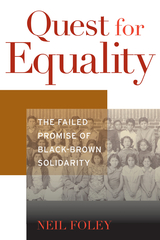
As the United States championed principles of freedom and equality during World War II, it denied fundamental rights to many non-white citizens. In the wake of President Franklin Roosevelt’s “Good Neighbor” policy with Latin America, African American and Mexican American civil rights leaders sought ways to make that policy of respect and mutual obligations apply at home as well as abroad. They argued that a whites-only democracy not only denied constitutional protection to every citizen but also threatened the war effort and FDR’s aims.
Neil Foley examines the complex interplay among regional, national, and international politics that plagued the efforts of Mexican Americans and African Americans to find common ground in ending employment discrimination in the defense industries and school segregation in the war years and beyond. Underlying differences in organizational strength, political affiliation, class position, and level of assimilation complicated efforts by Mexican and black Americans to forge strategic alliances in their fight for economic and educational equality. The prospect of interracial cooperation foundered as Mexican American civil rights leaders saw little to gain and much to lose in joining hands with African Americans.
Over a half century later, African American and Latino civil rights organizations continue to seek solutions to relevant issues, including the persistence of de facto segregation in our public schools and the widening gap in wealth and income in America. Yet they continue to grapple with the difficulty of forging solidarity across lines of cultural, class, and racial-ethnic difference, a struggle that remains central to contemporary American life.

How do we know reality? The prevalent theory has been that we construct knowledge upon absolute foundations, the way the Egyptians built pyramids. In recent years this foundationalist account has come under attack from a number of directions, from those who want to make epistemology a branch of cognitive science to those who reject out of hand the search for foundational certainty. Richard Foley’s book defends a modified form of foundationalism that does not depend on our having privileged access to the truth of foundational propositions.
Foley presents the idea of rational belief going back to Aristotle’s concept of rationality—as the basis for what he calls “subjective foundationalism.” Epistemological rationality is subjective for Foley because he sees the rationality of a belief as dependent on the cognitive resources and tendencies of the believer. He is able thereby to accommodate the strong “internalist” intuition telling us that whether it is rational for us to believe something depends on how that thing appears within our perspective on the world. But Foley removes a large part of the curse of subjectivism by making rationality dependent not on what the subject thinks, or is inclined to think at the moment of belief, but on what the subject would be inclined to think as a result of an ideally conducted reflection.
The foundationalists, he asserts, with their obsessive search for guarantors of truth, get the structure of epistemic rationality right but the spirit wrong. Foley gives a novel and provocative account of the nature of epistemic rationality.

Islam is the religion of over one billion people and is practiced in virtually every country on earth. The articulation of an Islamic environmental ethic in contemporary terms is all the more urgent because Western-style conservation efforts do not fit all cultural and philosophical traditions.
This volume outlines the Islamic view of the cosmic order and reviews the ways an Islamic world view can be interpreted, reassessed, and applied to such environmental problems as pollution and water scarcity. Sections on social justice and on issues of sustainability and development look at the history and roots of the current environmental crisis; at the broader context of women's rights of equal access to both natural and social resources; and at the interconnectedness of environmental protection and the alleviation of human poverty.
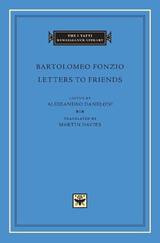
Bartolomeo Fonzio (1447–1513) was a leading literary figure in Florence during the time of Lorenzo de’ Medici and Machiavelli. A professor of poetry and rhetoric at the University of Florence, he included among his friends and colleagues leading figures such as Marsilio Ficino, Angelo Poliziano, John Argyropoulos, Cristoforo Landino, and Pietro Soderini. He was one of the principal collaborators in creating the famous humanist library of King Mattyas Corvinus of Hungary. As a scholar and teacher, he devoted himself to the study of classical authors, particularly Valerius Flaccus, Livy, Persius and Juvenal; his studies of Juvenal led to bitter polemics with Poliziano.
Fonzio’s letters, translated here for the first time into English, are a window into the world of Renaissance humanism and classical scholarship, and include the famous letter about the discovery in 1485 on the Via Appia of the perfectly preserved body of a Roman girl.

Ink landscape painting is a distinctive feature of the Northern Song, and painters of this era produced some of the most celebrated artworks in Chinese history. The Efficacious Landscape addresses how landmark works of this pivotal period first came to be identified as potent symbols of imperial authority and later became objects through which exiled scholars expressed disaffection and dissent. In fulfilling these diverse roles, landscape demonstrated its efficacy in communicating through embodiment and in transcending the limitations of the concrete.
Building on decades of monographic writings on Song painting, this carefully researched study presents a syncretic vision of how ink landscape evolved within the eleventh-century court community of artists, scholars, and aristocrats. Detailed visual analyses of surviving works and new insight about key landscapes by the court painter Guo Xi support the perspective put forward here and introduce original methodologies for interpreting painting as an integral element of political and cultural history. By focusing on the efforts of emperors, empresses, and eunuchs to cultivate ink landscape and its iconography, this investigation also tackles the social and class dichotomies that have long defined and frustrated existing scholarship on this period’s paintings, highlighting instead the interconnectedness of painting practice’s elite modalities.
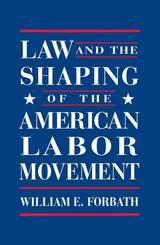
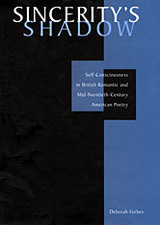
In a work of surprising range and authority, Deborah Forbes refocuses critical discussion of both Romantic and modern poetry. Sincerity's Shadow is a versatile conceptual toolkit for reading poetry.
Ever since Wordsworth redefined poetry as "the spontaneous overflow of powerful feelings," poets in English have sought to represent a "sincere" self-consciousness through their work. Forbes's generative insight is that this project can only succeed by staging its own failures. Self-representation never achieves final sincerity, but rather produces an array of "sincerity effects" that give form to poetry's exploration of self. In essays comparing poets as seemingly different in context and temperament as Wordsworth and Adrienne Rich, Lord Byron and Anne Sexton, John Keats and Elizabeth Bishop, Forbes reveals unexpected convergences of poetic strategy. A lively and convincing dialectic is sustained through detailed readings of individual poems. By preserving the possible claims of sincerity longer than postmodern criticism has tended to, while understanding sincerity in the strictest sense possible, Forbes establishes a new vantage on the purposes of poetry.
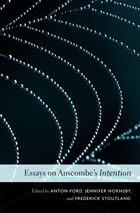
G. E. M. Anscombe's Intention, firmly established the philosophy of action as a distinctive field of inquiry. Donald Davidson called this 94-page book "the most important treatment of action since Aristotle." But until quite recently, few scholars recognized the magnitude of Anscombe's philosophical achievement. This collection of ten essays elucidates some of the more challenging aspects of Anscombe's work and affirms her reputation as one of our most original philosophers.
Born in 1919, Anscombe studied at St. Hugh's College, Oxford, where she later held a research fellowship. In 1941 she married philosopher Peter Geach, with whom she had seven children. A close friend of Wittgenstein, in 1946 she joined Oxford's Somerville College and spent the next twenty-four years there before being appointed to the Chair of Philosophy at Cambridge that Wittgenstein had held. She died in 2001 after her long career as a highly regarded analytic philosopher.
This volume brings together fresh interpretations of Intention written by some of today's leading philosophers of action. It will enlighten Anscombe's readers who struggle with concepts they find puzzling or obscure, while providing a bracing corrective to doubts about Intention's significance and the gravity of what is at stake.
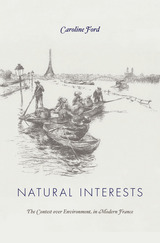
Challenging the conventional wisdom that French environmentalism can be dated only to the post-1945 period, Caroline Ford argues that a broadly shared environmental consciousness emerged in France much earlier. Natural Interests unearths the distinctive features of French environmentalism, in which a large and varied cast of social actors played a role. Besides scientific advances and colonial expansion, nostalgia for a vanishing pastoral countryside and anxiety over the pressing dangers of environmental degradation were important factors in the success of this movement.
Over the nineteenth and twentieth centuries, war, political upheaval, and natural disasters—especially the devastating floods of 1856 and 1910 in Paris—caused growing worry over the damage wrought by deforestation, urbanization, and industrialization. The natural world took on new value for France’s urban bourgeoisie, as both a site of aesthetic longing and a destination for tourism. Not only naturalists and scientists but politicians, engineers, writers, and painters took up environmental causes.
Imperialism and international dialogue were also instrumental in shaping environmental consciousness, as the unfamiliar climates of France’s overseas possessions changed perceptions of the natural world and influenced conservationist policies. By the early twentieth century, France had adopted innovative environmental legislation, created national and urban parks and nature reserves, and called for international cooperation on environmental questions.
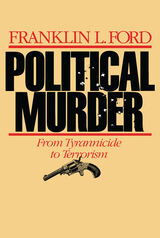
Franklin Ford's unprecedented inquiry into assassination traverses civilizations, cultures, religions, and modes of social behavior to locate the common threads of this often mysterious and always shocking phenomenon.
Are there similarities between the killings of the Gracchi brothers and the Kennedy brothers? Does the Baader-Meinhof terrorist gang have roots in the rightist murder teams of Weimar Germany? Was political context as important to the crucifixion of Jesus as to the death of Martin Luther King in 1968? Are political murders usually produced by elaborate conspiracies, or are they more often the work of lone assassins? What circumstances and impulses motivate an individual to risk his or her own life to kill another for reasons of state? This fast-paced narrative, interspersed with reflections, finds intriguing implications in a multitude of famous cases.
From the first known case of political murder, Ehud the Benjamite's stabbing of Eglon, to the recent gunning down of Indira Gandhi by two trusted Sikh bodyguards, the frequency of such acts has varied greatly over time. Mainland Greece suffered few political murders in the violent century of Pericles. The Romans, despite their bloody record under the Empire, avoided assassination for almost four hundred years under the Republic. There was a third such "remission" during the twelfth and thirteenth centuries, Europe's high Middle Ages, matched by yet another extending from 1650 to 1789. In the interval between, the sixteenth century was an especially violent time in countries such as Scotland, the Netherlands, and France. Assassination and terrorism increased again after 1815, but the nineteenth century did not come close to equaling the twentieth in the number of brutal episodes.
Ford's exploration of calculated, personalized assassination draws on history, literature, law, philosophy, sociology, and religion. Addressing the vast array of cases and combing thousands of years of history, he asks most of all whether assassination works. Does it, in even a minority of cases, produce results consistent with the aims of those who attempt it? Can it forestall evil acts or prevent irreparable damage inflicted by misguided leaders? Or is it "bad politics" in every sense of the term? The questions are large ones, and this book offers a sophisticated basis for seeking answers.


Ken Ford’s mission is to help us understand the “great ideas” of quantum physics—ideas such as wave-particle duality, the uncertainty principle, superposition, and conservation. These fundamental concepts provide the structure for 101 Quantum Questions, an authoritative yet engaging book for the general reader in which every question and answer brings out one or more basic features of the mysterious world of the quantum—the physics of the very small.
Nuclear researcher and master teacher, Ford covers everything from quarks, quantum jumps, and what causes stars to shine, to practical applications ranging from lasers and superconductors to light-emitting diodes. Ford’s lively answers are enriched by Paul Hewitt's drawings, numerous photos of physicists, and anecdotes, many from Ford’s own experience. Organized for cover-to-cover reading, 101 Quantum Questions also is great for browsing.
Some books focus on a single subject such as the standard model of particles, or string theory, or fusion energy. This book touches all those topics and more, showing us that disparate natural phenomena, as well as a host of manmade inventions, can be understood in terms of a few key ideas. Yet Ford does not give us simplistic explanations. He assumes a serious reader wanting to gain real understanding of the essentials of quantum physics.
Ken Ford's other books include The Quantum World: Quantum Physics for Everyone (Harvard 2004), which Esquire magazine recommended as the best way to gain an understanding of quantum physics. Ford's new book, a sequel to the earlier one, makes the quantum world even more accessible.

How the imposition of Crown rule across the British Empire during the Age of Revolution corroded the rights of British subjects and laid the foundations of the modern police state.
During the eighteenth and nineteenth centuries, the British Empire responded to numerous crises in its colonies, from North America to Jamaica, Bengal to New South Wales. This was the Age of Revolution, and the Crown, through colonial governors, tested an array of coercive peacekeeping methods in a desperate effort to maintain control. In the process these leaders transformed what it meant to be a British subject.
In the decades after the American Revolution, colonial legal regimes were transformed as the king’s representatives ruled new colonies with an increasingly heavy hand. These new autocratic regimes blurred the lines between the rule of law and the rule of the sword. Safeguards of liberty and justice, developed in the wake of the Glorious Revolution, were eroded while exacting obedience and imposing order became the focus of colonial governance. In the process, many constitutional principles of empire were subordinated to a single, overarching rule: where necessary, colonial law could diverge from metropolitan law. Within decades of the American Revolution, Lisa Ford shows, the rights claimed by American rebels became unthinkable in the British Empire. Some colonial subjects fought back but, in the empire, the real winner of the American Revolution was the king.
In tracing the dramatic growth of colonial executive power and the increasing deployment of arbitrary policing and military violence to maintain order, The King’s Peace provides important lessons on the relationship between peacekeeping, sovereignty, and political subjectivity—lessons that illuminate contemporary debates over the imbalance between liberty and security.
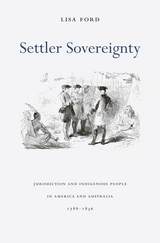
In a brilliant comparative study of law and imperialism, Lisa Ford argues that modern settler sovereignty emerged when settlers in North America and Australia defined indigenous theft and violence as crime.
This occurred, not at the moment of settlement or federation, but in the second quarter of the nineteenth century when notions of statehood, sovereignty, empire, and civilization were in rapid, global flux. Ford traces the emergence of modern settler sovereignty in everyday contests between settlers and indigenous people in early national Georgia and the colony of New South Wales. In both places before 1820, most settlers and indigenous people understood their conflicts as war, resolved disputes with diplomacy, and relied on shared notions like reciprocity and retaliation to address frontier theft and violence. This legal pluralism, however, was under stress as new, global statecraft linked sovereignty to the exercise of perfect territorial jurisdiction. In Georgia, New South Wales, and elsewhere, settler sovereignty emerged when, at the same time in history, settlers rejected legal pluralism and moved to control or remove indigenous peoples.
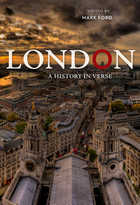
Called “the flour of Cities all,” London has long been understood through the poetry it has inspired. Now poet Mark Ford has assembled the most capacious and wide-ranging anthology of poems about London to date, from Chaucer to Wordsworth to the present day, providing a chronological tour of urban life and of English literature.
Nearly all of the major poets of British literature have left some poetic record of London: Chaucer, Spenser, Shakespeare, Donne, Milton, Dryden, Pope, Johnson, Wordsworth, Keats, Byron, and T. S. Eliot. Ford goes well beyond these figures, however, to gather significant verse of all kinds, from Jacobean city comedies to nursery rhymes, from topical satire to anonymous ballads. The result is a cultural history of the city in verse, one that represents all classes of London’s population over some seven centuries, mingling the high and low, the elegant and the salacious, the courtly and the street smart. Many of the poems respond to large events in the city’s history—the beheading of Charles I, the Great Fire, the Blitz—but the majority reflect the quieter routines and anxieties of everyday life through the centuries.
Ford’s selections are arranged chronologically, thus preserving a sense of the strata of the capital’s history. An introductory essay by the poet explores in detail the cultural, political, and aesthetic significance of the verse inspired by this great city. The result is a volume as rich and vibrant and diverse as London itself.
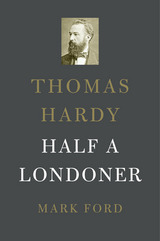
Because Thomas Hardy is so closely associated with the rural Wessex of his novels, stories, and poems, it is easy to forget that he was, in his own words, half a Londoner. Focusing on the formative five years in his early twenties when Hardy lived in the city, but also on his subsequent movement back and forth between Dorset and the capital, Mark Ford shows that the Dorset-London axis is critical to an understanding of his identity as a man and his achievement as a writer.
Thomas Hardy: Half a Londoner presents a detailed account of Hardy’s London experiences, from his arrival as a shy, impressionable youth, to his embrace of radical views, to his lionization by upper-class hostesses eager to fête the creator of Tess. Drawing on Hardy’s poems, letters, fiction, and autobiography, it offers a subtle, moving exploration of the author’s complex relationship with the metropolis and those he met or observed there: publishers, fellow authors, street-walkers, benighted lovers, and the aristocratic women who adored his writing but spurned his romantic advances.
The young Hardy’s oscillations between the routines and concerns of Dorset’s Higher Bockhampton and the excitements and dangers of London were crucial to his profound sense of being torn between mutually dependent but often mutually uncomprehending worlds. This fundamental self-division, Ford argues, can be traced not only in the poetry and fiction explicitly set in London but in novels as regionally circumscribed as Far from the Madding Crowd and Tess of the d’Urbervilles.

In this challenging collection of essays, the noted historian and philosopher of science John Forrester delves into the disputes over Freud's dead body. With wit and erudition, he tackles questions central to our psychoanalytic century's ways of thinking and living, including the following: Can one speak of a morality of the psychoanalytic life? Are the lives of both analysts and patients doomed to repeat the incestuous patterns they uncover? What and why did Freud collect? Is a history of psychoanalysis possible?
By taking nothing for granted and leaving no cliché of psychobabble--theoretical or popular--unturned, Forrester gives us a sense of the ethical surprises and epistemological riddles that a century of tumultuous psychoanalytical debate has often obscured. In these pages, we explore dreams, history, ethics, political theory, and the motor of psychoanalysis as a scientific movement.
Forrester makes us feel that the Freud Wars are not merely a vicious quarrel or a fashionable journalistic talking point for the late twentieth century. This hundred years' war is an index of the cultural and scientific climate of modern times. Freud is indeed a barometer for understanding how we conduct our different lives.

Lying on the couch, the patient must tell all. And yet, as the psychoanalyst well knows, the patient is endlessly unable--unwilling--to speak the truth. This perversity at the heart of psychoanalysis, a fine focus on intimate truths even as the lines between truth and lies are being redrawn, is also at the center of this book of essays by the renowned historian of psychoanalysis John Forrester. Continuing the work begun in Dispatches from the Freud Wars, Truth Games offers a rich philosophical and historical perspective on the mechanics, moral dilemmas, and rippling implications of psychoanalysis.
Lacan observed that the psychoanalyst's patient is, even when lying, operating in the dimension of truth. Beginning with Lacan's reading of Freud's case history of the Rat Man, Forrester pursues the logic and consequences of this assertion through Freud's relationship with Lacan into the general realm of psychoanalysis and out into the larger questions of anthropology, economics, and metaphysics that underpin the practice. His search takes him into the parallels between money and speech through an exploration of the metaphors of circulation, exchange, indebtedness, and trust that so easily glide from one domain to the other.
Original, witty, incisive, these essays provide a new understanding of the uses and abuses and the ultimate significance of truth telling and lying, trust and confidence as they operate in psychoanalysis--and in the intimate world of the self and society that it seeks to know.

The rejection by Anglo-Saxon philosophers of much "continental philosophy" (from Hegel on down) is largely based on the perceived failure of continental thinkers to grapple with the tough questions of epistemology in general and skepticism in particular. Forster demonstrates that Hegel did not in fact ignore epistemology, but on the contrary he fought a tireless and subtle campaign to defeat the threat of skepticism. Forster's work should dispel once and for all the view that Hegel was naive or careless in epistemological matters.
Forster begins by discussing Hegel's critical interpretation of the skeptical tradition, in particular his convincingly argued case for the superiority of ancient over modern skepticism. He goes on to show that the difficulties characteristic of ancient skepticism play a crucial and fascinating role in Hegel's philosophy of history. Hegel sees in the emergence of these difficulties an explanation of why the harmonious unified Greek culture collapsed and was replaced by the division and alienation characteristic of subsequent western culture. Finally, Forster examines the elaborate and ingenious system of defenses erected by Hegel to protect his philosophical thought against skeptical difficulties, as the core of a somewhat broader epistemological project. Along the way, Forster makes much that has hither to remained obscure in Hegel's texts intelligible for the first time. This book should cause a re-evaluation of Hegel, and German Idealism generally, and contribute to a re-evaluation of the skeptical tradition in philosophy.



Fossils, far from being mere dry bones, provide the key to understanding the stuff of history: past climates, evolution, and extinction. In this lively introduction, Richard Fortey offers an engaging and lucid explanation of how fossils are a product of our endlessly evolving habitat. The story begins with the Precambrian era, more than 600 million years ago. As Fortey traces the history of life from the dawn of the Precambrian to the present, he paints a vivid picture of the emergence of the plants and animals that we would recognize today. Unlike so many works on fossils that focus on dinosaurs, this book covers a broad range of animals and plants and does justice to the numerical superiority of invertebrate fossils.
The scope of the book is wide, including not only a history of paleontology but a review of those parts of general geology that are needed to appreciate the wealth of information contained in the fossil record: stratigraphy, measurements of paleotemperatures and radiometric ages, turbidites, reefs, sandstones, and so on. But the main emphasis of the book is on what paleontology is really about, how the paleontologist tries to figure out the ways in which fossil animals lived, and how geological processes such as plate tectonics have interacted with the history of life.
Fossils attempts to survey the contemporary paleontological scene in order to communicate the excitement of investigating the past. A primary goal of the book is to inspire and instruct the amateur fossil collector; hence, the specimens illustrated—many of which are presented in full color—are ones that are not too difficult for the amateur to collect. To aid the neophyte, the author has appended notes on the occurrence, significance, and preparation of each specimen. Of particular interest to the amateur are the discussions on how to collect fossils and on the economic and practical importance of fossils and their enclosing sediments. In striking a perfect balance between detail and generalization, Richard Fortey has written a book that will appeal to amateur and professional alike.

Raute and Rawat are endangered languages belonging to the Raji-Raute language cluster within the large Sino-Tibetan family of languages spoken across Asia. The Raute and Rawat people are forest foragers in the central Himalayan region, living by hunting, gathering, and trade of wooden carvings to outsiders. Their remarkably conservative mother tongues contain a wealth of concepts about egalitarianism, religious animism, and aspects of forest life. Understanding these language concepts may provide a better appreciation of the cultural history of forest-dwelling peoples in Asia and a way of living that is in danger of becoming obsolete—as farming communities convert the forests to fields and people face pressure to assimilate.
The dictionary provides a full description of each entry, including a provenance of its speech community, the part of speech, and a gloss in English, Nepali, and Kumauni. In addition, most entries contain an example of usage in a sample sentence, notes on cultural significance, and a meticulously studied etymology. The book provides a useful reference work with previously unpublished information about the speakers’ ethnic identities and their culturally significant plants, animals, deities, and material culture.
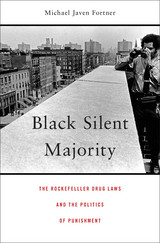
Often seen as a political sop to the racial fears of white voters, aggressive policing and draconian sentencing for illegal drug possession and related crimes have led to the imprisonment of millions of African Americans—far in excess of their representation in the population as a whole. Michael Javen Fortner shows in this eye-opening account that these punitive policies also enjoyed the support of many working-class and middle-class blacks, who were angry about decline and disorder in their communities. Black Silent Majority uncovers the role African Americans played in creating today’s system of mass incarceration.
Current anti-drug policies are based on a set of controversial laws first adopted in New York in the early 1970s and championed by the state’s Republican governor, Nelson Rockefeller. Fortner traces how many blacks in New York came to believe that the rehabilitation-focused liberal policies of the 1960s had failed. Faced with economic malaise and rising rates of addiction and crime, they blamed addicts and pushers. By 1973, the outcry from grassroots activists and civic leaders in Harlem calling for drastic measures presented Rockefeller with a welcome opportunity to crack down on crime and boost his political career. New York became the first state to mandate long prison sentences for selling or possessing narcotics.
Black Silent Majority lays bare the tangled roots of a pernicious system. America’s drug policies, while in part a manifestation of the conservative movement, are also a product of black America’s confrontation with crime and chaos in its own neighborhoods.

The eleven books of poetry by Venantius Fortunatus include well-loved hymns, figure poems, epigrams on miracles, and elegies in the voices of abandoned or exiled women. The sixth-century poet began his career in northern Italy before moving to Gaul, where he wrote for the remainder of his life—praising kings and elites of the Merovingian dynasty and describing the natural scenery and society of his adopted homeland during the transition from late antiquity to the early Middle Ages. In his lively and inventive style, Fortunatus also addressed verses to religious figures such as his patron Gregory of Tours and to holy women such as Radegund, founder of the Convent of the Holy Cross in Poitiers, and Agnes, the convent’s first abbess.
Fortunatus’s imaginative metaphors and wry, self-mocking humor ensure his place in the canon of Christian Latin poets. This volume presents for the first time in English translation all of his poetry, apart from a single long saint’s life in verse.





The Wildlands and Woodlands vision, as described in two previous Harvard Forest publications, calls for collaboration among conservationists and willing landowners to permanently protect at least 70 percent of the New England landscape as forests by 2060. Another 7 percent of land that is currently in agriculture would remain intact for wildlife and people. This series advocates a balanced approach to conservation and preservation; most land would be actively and sustainably managed for wood, food, and other values, while continuing to provide clean water and air, wildlife habitat, recreation, and support for human lives in a changing environment. About a tenth of the forest, along with associated wetlands, streams, ponds, and other habitats, would comprise large wildland reserves.
This 2017 report offers new data on progress toward these goals and outlines complementary uses of the forest and agricultural landscape with thoughtful and efficient development of rural villages and towns, suburbs, and cities—to support people and nature across New England. It ends with recommendations to protect and care for the land that can forge a bright future for New England, provide a regional example for the nation, and help mitigate global environmental change.

Over the past three hundred years New England's landscape has been transformed. The forests were cleared; the land was farmed intensively through the mid-nineteenth century and then was allowed to reforest naturally as agriculture shifted west. Today, in many ways the region is more natural than at any time since the American Revolution. This fascinating natural history is essential background for anyone interested in New England's ecology, wildlife, or landscape.
In New England Forests through Time these historical and environmental lessons are told through the world-renowned dioramas in Harvard's Fisher Museum. These remarkable models have introduced New England's landscape to countless visitors and have appeared in many ecology, forestry, and natural history texts. This first book based on the dioramas conveys the phenomenal history of the land, the beauty of the models, and new insights into nature.
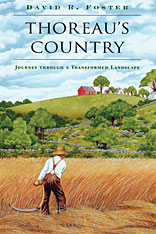
In 1977 David Foster took to the woods of New England to build a cabin with his own hands. Along with a few tools he brought a copy of the journals of Henry David Thoreau. Foster was struck by how different the forested landscape around him was from the one Thoreau described more than a century earlier. The sights and sounds that Thoreau experienced on his daily walks through nineteenth-century Concord were those of rolling farmland, small woodlands, and farmers endlessly working the land. As Foster explored the New England landscape, he discovered ancient ruins of cellar holes, stone walls, and abandoned cartways--all remnants of this earlier land now largely covered by forest. How had Thoreau's open countryside, shaped by ax and plough, divided by fences and laneways, become a forested landscape?
Part ecological and historical puzzle, this book brings a vanished countryside to life in all its dimensions, human and natural, offering a rich record of human imprint upon the land. Extensive excerpts from the journals show us, through the vividly recorded details of daily life, a Thoreau intimately acquainted with the ways in which he and his neighbors were changing and remaking the New England landscape. Foster adds the perspective of a modern forest ecologist and landscape historian, using the journals to trace themes of historical and social change.
Thoreau's journals evoke not a wilderness retreat but the emotions and natural history that come from an old and humanized landscape. It is with a new understanding of the human role in shaping that landscape, Foster argues, that we can best prepare ourselves to appreciate and conserve it today.
From the journal:
"I have collected and split up now quite a pile of driftwood--rails and riders and stems and stumps of trees--perhaps half or three quarters of a tree...Each stick I deal with has a history, and I read it as I am handling it, and, last of all, I remember my adventures in getting it, while it is burning in the winter evening. That is the most interesting part of its history. It has made part of a fence or a bridge, perchance, or has been rooted out of a clearing and bears the marks of fire on it...Thus one half of the value of my wood is enjoyed before it is housed, and the other half is equal to the whole value of an equal quantity of the wood which I buy."
--October 20, 1855
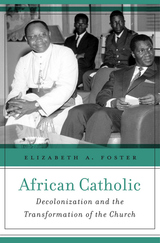
Winner of the John Gilmary Shea Prize
A groundbreaking history of how Africans in the French Empire embraced both African independence and their Catholic faith during the upheaval of decolonization, leading to a fundamental reorientation of the Catholic Church.
African Catholic examines how French imperialists and the Africans they ruled imagined the religious future of French sub-Saharan Africa in the years just before and after decolonization. The story encompasses the political transition to independence, Catholic contributions to black intellectual currents, and efforts to alter the church hierarchy to create an authentically “African” church.
Elizabeth Foster recreates a Franco-African world forged by conquest, colonization, missions, and conversions—one that still exists today. We meet missionaries in Africa and their superiors in France, African Catholic students abroad destined to become leaders in their home countries, African Catholic intellectuals and young clergymen, along with French and African lay activists. All of these men and women were preoccupied with the future of France’s colonies, the place of Catholicism in a postcolonial Africa, and the struggle over their personal loyalties to the Vatican, France, and the new African states.
Having served as the nuncio to France and the Vatican’s liaison to UNESCO in the 1950s, Pope John XXIII understood as few others did the central questions that arose in the postwar Franco-African Catholic world. Was the church truly universal? Was Catholicism a conservative pillar of order or a force to liberate subjugated and exploited peoples? Could the church change with the times? He was thinking of Africa on the eve of Vatican II, declaring in a radio address shortly before the council opened, “Vis-à-vis the underdeveloped countries, the church presents itself as it is and as it wants to be: the church of all.”

Of his friend of many years, Dr. John Fothergill, Benjamin Franklin wrote: "I can hardly conceive that a better man has ever existed." Fothergill's letters provide a fascinating perspective of his time--a totally different view from that given by his contemporaries Horace Walpole and Dr. Johnson.
The "Quaker internationalist" (as his editors aptly call him) was during the middle decades of the eighteenth century one of the half dozen leading physicians of London, a horticulturist of great distinction, an educational reformer, a patron of many philanthropic causes, and a tireless friend of Americans and the cause of American rights. He was exceedingly generous as a patron of scientific undertakings and of young Americans abroad. He founded a famous Quaker school for boys and girls which is still flourishing; he helped found various benevolent and educational institutions in America and he continually subsidized worthy books and gave them to worthy recipients.
All these activities and others are recorded in the some two hundred letters here selected for publication. They throw light on Quaker history on both sides of the Atlantic, on advances in medical science and institutional care of the sick, on discoveries in natural history, and on political developments from the Jacobite Rebellion through the American Revolution. From the beginnings of the rift between colonies and mother country, Fothergill served as a vigorous advocate of conciliatory measures and commonwealth status for America, speaking with equal frankness and impartiality to leaders on both sides until well after hostilities began.
A few weeks before he died (at the end of 1780), he wrote Franklin in France to say that with all Europe leagued against England nothing could be hoped for her from this war, but that the world might hope for the establishment of a tribunal to settle disputes among nations and preclude war as an instrument of policy.
This edition includes a substantial introduction, and the letters have been annotated with great skill and authority. Lyman Butterfield, well known editor of the Adams Papers, says, "I have never encountered annotation on bibliographical, biographical, medical, botanical, and topographical matters that is more unfailingly readable per se. The transatlantic combination of editors was obviously just right. Toward understanding one prominent strand in the cultural history of the 18th century, this book is a uniquely valuable contribution."

David Foulkes is one of the international leaders in the empirical study of children’s dreaming, and a pioneer of sleep laboratory research with children. In this book, which distills a lifetime of study, Foulkes shows that dreaming as we normally understand it—active stories in which the dreamer is an actor—appears relatively late in childhood. This true dreaming begins between the ages of 7 and 9. He argues that this late development of dreaming suggests an equally late development of waking reflective self-awareness.
Foulkes offers a spirited defense of the independence of the psychological realm, and the legitimacy of studying it without either psychoanalytic over-interpretation or neurophysiological reductionism.
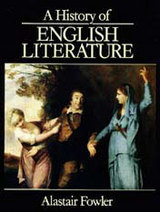


As the electric power industry faces the challenges of climate change, technological disruption, new market imperatives, and changing policies, a renowned energy expert offers a roadmap to the future of this essential sector.
As the damaging and costly impacts of climate change increase, the rapid development of sustainable energy has taken on great urgency. The electricity industry has responded with necessary but wrenching shifts toward renewables, even as it faces unprecedented challenges and disruption brought on by new technologies, new competitors, and policy changes. The result is a collision course between a grid that must provide abundant, secure, flexible, and affordable power, and an industry facing enormous demands for power and rapid, systemic change.
The fashionable solution is to think small: smart buildings, small-scale renewables, and locally distributed green energy. But Peter Fox-Penner makes clear that these will not be enough to meet our increasing needs for electricity. He points instead to the indispensability of large power systems, battery storage, and scalable carbon-free power technologies, along with the grids and markets that will integrate them. The electric power industry and its regulators will have to provide all of these, even as they grapple with changing business models for local electric utilities, political instability, and technological change. Power after Carbon makes sense of all the moving parts, providing actionable recommendations for anyone involved with or relying on the electric power system.

The long seventeenth century in China was a period of tremendous commercial expansion, and no literary genre was better equipped to articulate its possibilities than southern drama. As a form and a practice, southern drama was in the business of world-building—both in its structural imperative to depict and reconcile the social whole and in its creation of entire economies dependent on its publication and performance. However, the early modern commercial world repelled rather than engaged most playwrights, who consigned its totems—the merchant and his money—to the margins as sources of political suspicion and cultural anxiety.
In The Cornucopian Stage, Ariel Fox examines a body of influential yet understudied plays by a circle of Suzhou playwrights who enlisted the theatrical imaginary to very different ends. In plays about long-distance traders and small-time peddlers, impossible bargains and broken contracts, strings of cash and storehouses of silver, the Suzhou circle placed commercial forms not only at center stage but at the center of a new world coming into being. Here, Fox argues, the economic character of early modern selfhood is recast as fundamentally productive—as the basis for new subject positions, new kinds of communities, and new modes of art.


Paradoxically, at a time when hunting and gathering societies are almost a thing of the past, a subsistence system based on gathering is not only persisting but actually gaining ground in southeastern Indonesia. The economy of the small islands of Roti and Savu is centered on the intensive use of the lontar palm tree, whose juice is the staple of the people's diet and whose leaves, leafstalks, and trunks provide the wherewithal for their housing and most of their needs.
This economy, marvelously stable and adaptive, is described in detail by James Fox, and is contrasted with that of the large neighboring islands, Timor and Sumba; there slash-and-burn agriculture has led to steady ecological deterioration, in the wake of which the lontar economy of the smaller islands has gained a foothold and is gradually expanding. How these developments came about is revealed by an examination of the history of the islands over several hundred years and the effects of the policies of successive colonial governments. The historical perspective adds depth to the ethnographic presentation and is vital to the anthropological analysis of social change.
In preparation for the writing of this book the author spent three years in the Timor area, especially on Roti; learned Dutch, Indonesian, and several local island dialects; and had done intensive historical research in Indonesia and in archives in the Netherlands.
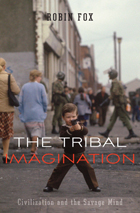
We began as savages, and savagery has served us well—it got us where we are. But how do our tribal impulses, still in place and in play, fit in the highly complex, civilized world we inhabit today? This question, raised by thinkers from Freud to Lévi-Strauss, is fully explored in this book by the acclaimed anthropologist Robin Fox. It takes up what he sees as the main—and urgent—task of evolutionary science: not so much to explain what we do, as to explain what we do at our peril.
Ranging from incest and arranged marriage to poetry and myth to human rights and pop icons, Fox sets out to show how a variety of human behaviors reveal traces of their tribal roots, and how this evolutionary past limits our capacity for action. Among the questions he raises: How real is our notion of time? Is there a human “right” to vengeance? Are we democratic by nature? Are cultural studies and fascism cousins under the skin? Is evolutionary history coming to an end—or just getting more interesting? In his famously informative and entertaining fashion, drawing links from Volkswagens to Bartók to Woody Guthrie, from Swinburne to Seinfeld, Fox traces our ongoing struggle to maintain open societies in the face of profoundly tribal human needs—needs which, paradoxically, hold the key to our survival.
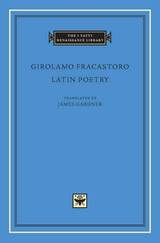

The French Revolution opened a whole new stage in the history of women, despite their conspicuous absence from the playbill. The coming century would see women’s subordination to men codified in all manner of new laws and rules; and yet the period would also witness the birth of feminism, the unprecedented emergence of women as a collective force in the political arena.
The fourth volume in this world-acclaimed series covers the distance between these two poles, between the French Revolution and World War I. It gives us a vibrant picture of a bourgeois century, dynamic and expansive, in which the role of woman in the home was stressed more and more, even as the economic pressures and opportunities of the industrial revolution drew her out of the house; in which woman’s growing role in the family as the center of all morals and virtues pressed her into public service to fight social ills.


This book is about the Homeric figure Nestor. This study is important because it reveals a level of deliberate irony in the Homeric poems that has hitherto not been suspected, and because Nestor’s role in the poems, which is built on this irony, is a key to the circumstances of the poems’ composition.
Nestor’s stories about the past, especially his own youth, often lack purpose on the surface of the poems, but with a slight shift of focus they provide a deep commentary on the present action of both poems. Nestor’s Homeric epithet, hippota, “the horseman,” permits the necessary refocus. The combination of epithet and name, hippota Nestor, has Indo-European roots, as a comparison with Vedic Sanskrit shows. Interpreted in the context of the Indo-European twin myth, Nestor’s role clearly points beyond itself to the key question in Homeric studies: the circumstances of the poems’ composition.
Nestor has a special relation to Ionia, where the Homeric poems were composed, and through Ionia to early Athens. The relationship between the Ionian city of Miletus and early Athens is particularly important. In addition to the role of these cities, the location of Nestor’s city Pylos, an ancient conundrum, is sharply illuminated by this new interpretation of Nestor’s Homeric role.
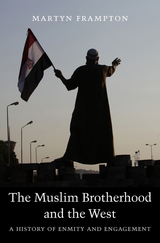
A Foreign Affairs Best Book of the Year
In the century since the Muslim Brotherhood first emerged in Egypt, its idea of “the West” has remained a key driver of its behavior. From its founding, the Brotherhood stood opposed to the British Empire and Western cultural influence. Its leaders hoped to create more pristine, authentically Islamic societies. As British power gave way to American, the Brotherhood oscillated between anxiety about the West and the need to engage with it, while American and British officials struggled to understand the group, unsure whether to shun or embrace it.
The Muslim Brotherhood and the West offers the first comprehensive history of the relationship between the world’s largest Islamist movement and the powers that have dominated the Middle East for the past hundred years. Drawing on extensive archival research in London and Washington and the Brotherhood’s writings in Arabic and English, Martyn Frampton reveals the history of this charged relationship down to the eve of the Arab Spring. What emerges is an authoritative account of a story that is crucial to understanding one of the world’s most turbulent regions.
“Rigorous yet absorbing…Fills a crucial gap in the literature and will be essential reading not just for scholars, but for anyone seeking to understand the ever-problematic relationship between religion and politics in today’s Middle East.”
—Financial Times
“Breaks new ground by examining the links between the Egyptian Brotherhood’s relations with Britain and…the United States.”
—Times Literary Supplement
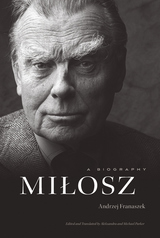
Andrzej Franaszek’s award-winning biography of Czeslaw Milosz—the great Polish poet and winner of the Nobel Prize in Literature in 1980—offers a rich portrait of the writer and his troubled century, providing context for a larger appreciation of his work. This English-language edition, translated by Aleksandra Parker and Michael Parker, contains a new introduction by the translators, along with historical explanations, maps, and a chronology.
Franaszek recounts the poet’s personal odyssey through the events that convulsed twentieth-century Europe: World War I, the Bolshevik revolution, the Nazi invasion and occupation of Poland, and the Soviet Union’s postwar dominance of Eastern Europe. He follows the footsteps of a perpetual outsider who spent much of his unsettled life in Lithuania, Poland, and France, where he sought political asylum. From 1960 to 1999, Milosz lived in the United States before returning to Poland, where he died in 2004.
Franaszek traces Milosz’s changing, constantly questioning, often skeptical attitude toward organized religion. In the long term, he concluded that faith performed a positive role, not least as an antidote to the amoral, soulless materialism that afflicts contemporary civilization. Despite years of hardship, alienation, and neglect, Milosz retained a belief in the transformative power of poetry, particularly its capacity to serve as a source of moral resistance and a reservoir of collective hope. Seamus Heaney once said that Milosz’s poetry is irradiated by wisdom. Milosz reveals how that wisdom was tempered by experience even as the poet retained a childlike wonder in a misbegotten world.

Once upon a time, there lived a humble juggler, Barnaby by name, who was skillful but suffered every winter from poverty. A devotee of the Virgin, he had few failings apart from enjoying drink a little too much. One day he met a monk, who persuaded him to enter a monastery. All the brethren had exceptional skills to exercise on behalf of Mary, but the juggler felt he had nothing worthy to offer. Finally, he had the notion to juggle copper balls and knives before the altar of the Virgin in the chapel. The others caught him in the act and deemed his behavior madness, but after seeing the Mother of God descend to soothe him, they realized that he was blessed.
Writers, illustrators, and musicians from the Middle Ages to the present have loved this simple, medieval tale. In 1890, Anatole France (1844–1924) adapted the original poem as the short story “Le jongleur de Notre-Dame.” Dumbarton Oaks is pleased to bring this version back into print for the enjoyment of modern audiences, featuring a translation by Jan M. Ziolkowski and Art Deco illustrations by Maurice Lalau (1881–1961), faithfully reproduced from a 1924 printing.

Once upon a time, there lived a humble juggler, Barnaby by name, who was skillful but suffered every winter from poverty. A devotee of the Virgin, he had few failings apart from enjoying drink a little too much. One day he met a monk, who persuaded him to enter a monastery. All the brethren had exceptional skills to exercise on behalf of Mary, but the juggler felt he had nothing worthy to offer. Finally, he had the notion to juggle copper balls and knives before the altar of the Virgin in the chapel. The others caught him in the act and deemed his behavior madness, but after seeing the Mother of God descend to soothe him, they realized that he was blessed.
In 1890, Anatole France (1844–1924) adapted this medieval French poem as the short story “Le jongleur de Notre-Dame,” republished in 1906 with illustrations by Henri Malteste (1881–1961)—who signed his work “Malatesta”—a specialist in medievalesque illustrations and calligraphy. Dumbarton Oaks is pleased to bring this version back for the enjoyment of modern audiences both young and old, with artwork reproduced from original gouaches, and a translation by Jan M. Ziolkowski facing the French text.


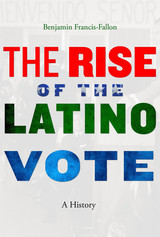
A new history reveals how the rise of the Latino vote has redrawn the political map and what it portends for the future of American politics.
The impact of the Latino vote is a constant subject of debate among pundits and scholars. Will it sway elections? And how will the political parties respond to the growing number of voters who identify as Latino? A more basic and revealing question, though, is how the Latino vote was forged—how U.S. voters with roots in Latin America came to be understood as a bloc with shared interests. In The Rise of the Latino Vote, Benjamin Francis-Fallon shows how this diverse group of voters devised a common political identity and how the rise of the Latino voter has transformed the electoral landscape.
Latino political power is a recent phenomenon. It emerged on the national scene during the turbulence of the 1960s and 1970s, when Mexican American, Puerto Rican, and Cuban American activists, alongside leaders in both the Democratic and the Republican parties, began to conceive and popularize a pan-ethnic Hispanic identity. Despite the increasing political potential of a unified Latino vote, many individual voters continued to affiliate more with their particular ethnic communities than with a broader Latino constituency. The search to resolve this contradiction continues to animate efforts to mobilize Hispanic voters and define their influence on the American political system.
The “Spanish-speaking vote” was constructed through deliberate action; it was not simply demographic growth that led the government to recognize Hispanics as a national minority group, ushering in a new era of multicultural politics. As we ponder how a new generation of Latino voters will shape America’s future, Francis-Fallon uncovers the historical forces behind the changing face of America.

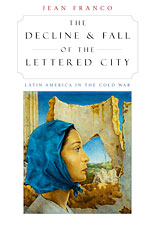
The cultural Cold War in Latin America was waged as a war of values--artistic freedom versus communitarianism, Western values versus national cultures, the autonomy of art versus a commitment to liberation struggles--and at a time when the prestige of literature had never been higher. The projects of the historic avant-garde were revitalized by an anti-capitalist ethos and envisaged as the opposite of the republican state. The Decline and Fall of the Lettered City charts the conflicting universals of this period, the clash between avant-garde and political vanguard. This was also a twilight of literature at the threshold of the great cultural revolution of the seventies and eighties, a revolution to which the Cold War indirectly contributed. In the eighties, civil war and military rule, together with the rapid development of mass culture and communication empires, changed the political and cultural map.
A long-awaited work by an eminent Latin Americanist widely read throughout the world, this book will prove indispensable to anyone hoping to understand Latin American literature and society. Jean Franco guides the reader across minefields of cultural debate and histories of highly polarized struggle. Focusing on literary texts by García Marquez, Vargas Llosa, Roa Bastos, and Juan Carlos Onetti, conducting us through this contested history with the authority of an eyewitness, Franco gives us an engaging overview as involving as it is moving.

A new translation of two medieval Spanish versions of the tale of Apollonius, a story central to the premodern literary imagination and a source for Shakespeare’s Pericles.
Incest, riddling, piracy, prostitution, shipwreck, Lazarus-like resuscitation, and seductive musical performances—the story of King Apollonius and his wanderings, with its riveting plot twists, has been told and retold in many languages since its late antique composition. No conventional romance hero, Apollonius proves his mettle not on the battlefield but through study, sport, music, and courtliness. The equally studious and courtly heroines of the romance—Luciana and Tarsiana, Apollonius’s wife and daughter—embark on their own adventures before the family reunites. Throughout, the king’s trials are cast as a Christian allegory of fortune.
Two Castillian versions are included in The Iberian Apollonius of Tyre. The thirteenth-century poem known as The Book of Apollonius, a creative adaptation by an unknown cleric, focuses on Apollonius as a pilgrim figure and Christianizes the narrative. The fifteenth-century prose Life and History of King Apollonius, a highly literal translation of the Latin Gesta Romanorum text by an anonymous Aragonese translator, is representative of vernacular humanism and linked with the genre of the short chivalric tale.
This volume presents new editions and English translations of these two complete, standalone medieval Spanish versions of the ancient legend.

Designed to fill a gap in Chaucerianstudies, this book offers new insight intothe development of Chaucer's artistry at acritical point in his career, after he hadcompleted the Troilus and just beforehe embarked on The Canterbury Tales. Chaucer and "The Legend of GoodWomen" rejects the usual criticalassessment of the Legend, setting it forthinstead as a serious and experimental work,an important and necessary prelude tothe achievement of The Canterbury Tales.
Robert Worth Frank, Jr., begins hisanalysis of the Legend with a carefulconsideration of Chaucer's situation in1386, the year he presumably beganthe Legend. It was, he suggests, a momentin his career propitious for change--change in subject and in art as well. TheLegend reveals this change in the process ofits accomplishment.
Frank stresses that the road to TheCanterbury Tales runs through the Legend.In tracing the route he shows howChaucer broke away from the limited tradition of courtly love and experimented with a variety of tones and styles and an expanded range of subject matter, with a new verse form, the pentameter couplet, and with new techniques of compression which led to a greater dedication to the short narrative form. The individual legends, though not Chaucer's greatest creations, have merits of their own. The general uniformity of theme proves misleading. The legends provide Chaucer with a broader canvas than he had ever used before, making possible a wide variety in tone and dramatic incident.
Above all, this study, enlivened by the author's supple and spirited prose, depicts Chaucer boldly committing himself to the great world of story and thereby drawing on some of the most enduring classical myths for material and moving toward a new art and a new and richer realm of human experience.
READERS
Browse our collection.
PUBLISHERS
See BiblioVault's publisher services.
STUDENT SERVICES
Files for college accessibility offices.
UChicago Accessibility Resources
home | accessibility | search | about | contact us
BiblioVault ® 2001 - 2024
The University of Chicago Press






